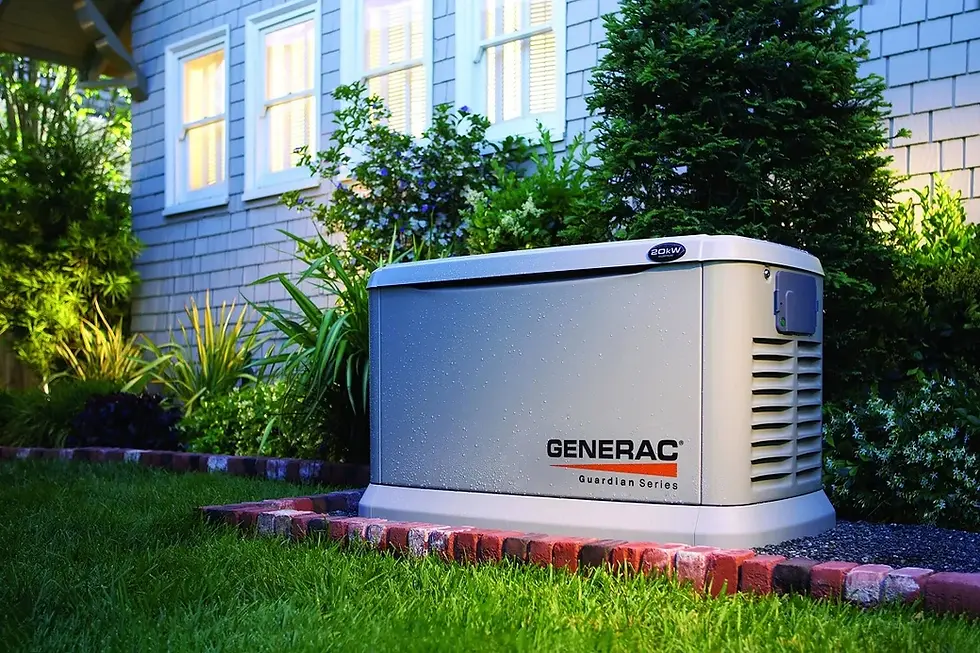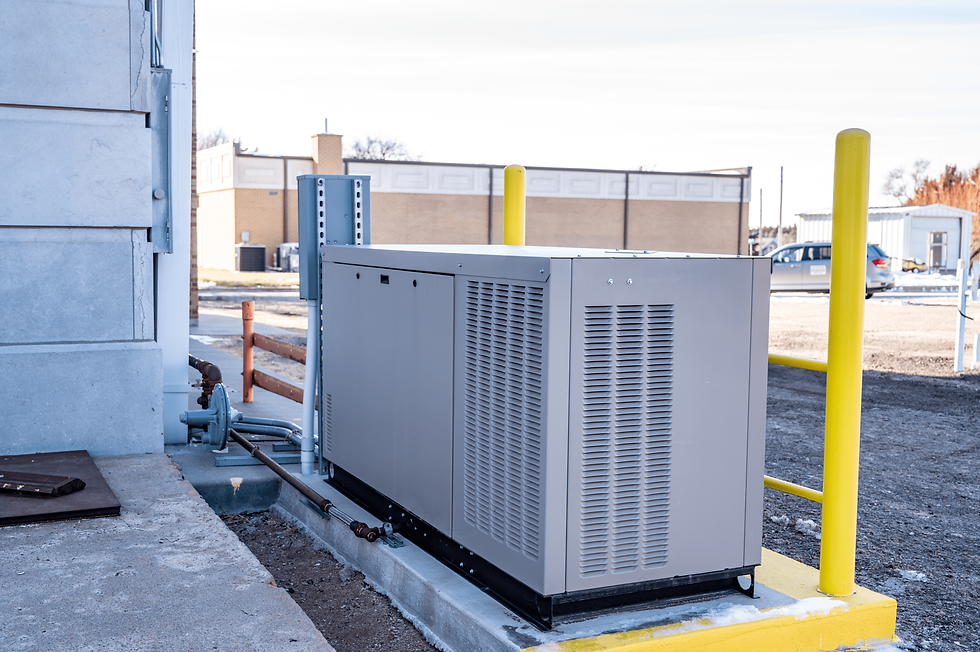Battery Backup vs. Standby Generator: Which is Better for Summer Use?
- Sparks Generators

- Jun 3, 2025
- 3 min read
Updated: Jul 31, 2025

As summer approaches in Barrie, many homeowners are thinking about how to keep their homes powered during storms, heatwaves, or unexpected blackouts. While most people know about traditional gas-powered standby generators, battery backup systems—often paired with solar—are becoming a popular alternative.
But which one is the better option for summer use? Let’s break down the pros and cons of each to help you make an informed decision.
What Is a Standby Generator?
A standby generator is a permanent fixture installed outside your home. It’s typically powered by natural gas or propane and automatically turns on when the power goes out. These systems are designed to power most or all of your home and can run for days if needed, as long as fuel is available.
Pros:
Reliable for long outages: Can run continuously during multi-day blackouts, which are common during major summer storms.
Powers the whole house: Including high-demand appliances like central air conditioning and sump pumps.
Automatic start: No manual activation required—great for vacations or when you're away from home.
Tried and tested: Proven technology that’s dependable in all weather.
Cons:
Fuel-dependent: Requires a steady supply of propane or natural gas.
Maintenance required: Needs occasional service to stay in good working order.
Upfront cost: Installation and equipment costs can be higher than portable or battery options.
What Is a Battery Backup System?
Battery backup systems store electricity, typically charged via solar panels or the grid. When an outage occurs, the battery system kicks in to power essential items in your home.
Pros:
Clean and quiet: No emissions, no noise—ideal for residential areas.
Low maintenance: Minimal upkeep compared to fuel-powered systems.
Pairable with solar: Reduces electricity bills and provides more independence from the grid.
Great for short outages: Handles quick power interruptions well.
Cons:
Limited runtime: Batteries can only power your home for a few hours (or a day or two max), depending on usage and system size.
Can't handle high-demand loads: Most systems won’t run central AC, electric ovens, or well pumps without significant upgrades.
Cost for whole-home coverage: High-capacity systems to power your entire home can be very expensive.
Which One Is Better for Summer?
It depends on your specific needs, home setup, and budget.
Choose a Standby Generator if:
You want full-home backup, including air conditioning.
You live in an area prone to long summer outages from storms.
You need reliable power for medical equipment or a home office.
You have natural gas or propane access.
Choose a Battery Backup if:
You only need to power essential devices (fridge, Wi-Fi, lights).
You value quiet, eco-friendly operation.
Your outages are short and infrequent.
You already have or plan to install solar panels.
The Bottom Line for Barrie Homeowners
In Barrie and surrounding areas, summer weather is increasingly unpredictable. Between grid strain during heatwaves and powerful thunderstorms, power outages are a growing concern. For full protection and peace of mind—especially if you rely on air conditioning or sump pumps—a standby generator remains the most dependable solution.
However, if you’re looking to supplement your energy use, reduce your carbon footprint, and don’t require high power loads, a battery backup system may be a smart investment.
At Sparks Generators, we help homeowners assess their power needs and choose the system that fits their lifestyle and budget. Whether you're interested in fuel-powered standby generators or exploring clean energy battery options, we’ll guide you every step of the way.
Want to Talk Backup Power Options?
Contact Sparks Generators today to book a consultation. We’ll help you prepare for whatever summer has in store—with backup power that works when you need it most.



Comments